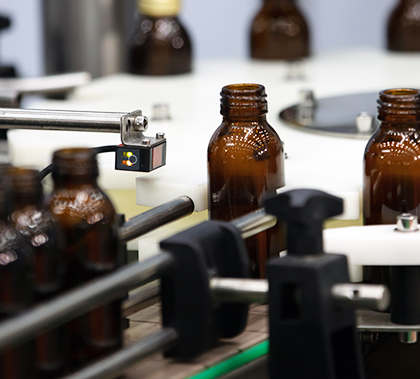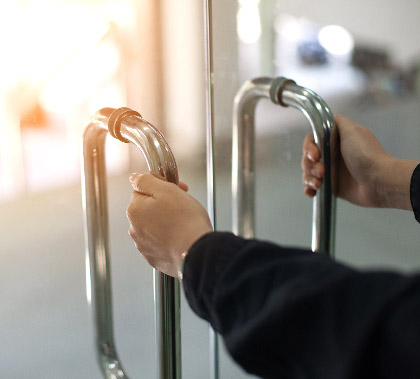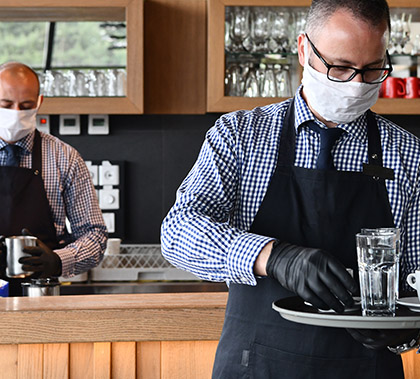
Pandemic positives: businesses are innovating; so should their insurers
Some UK firms are booming despite the Covid-19 downturn, producing new products and experiencing fresh demand as supply chains become more localised.
From making gin to selling hand sanitiser, Covid is transforming businesses fast. There’s no doubt about it, we are in a time of great change, tipping many business assumptions on their head.
Many companies are struggling to survive, through no fault of their own, in sectors shut down overnight by life under lockdown. But others are showing themselves able to adjust, fill new gaps in the market, and innovate in previously unexpected ways.
Many manufacturers have switched to products suddenly in demand. Demand for masks and ventilators has led to production lines suddenly retooled. It feels akin to the war economy experienced by our grandparents’ generation, switching factories from cars and consumer goods, to rolling out tanks, uniforms, guns and planes.[1]
High streets and shopping malls have been shut down across the country. Retailers with online businesses are now solely reliant on their digital channel to drive revenues. And their online customers are suddenly more sensitive to whether the items they buy from e-tailers are being shipped from the UK or China.
Bars and restaurants have closed during social distancing, but delivery food businesses are enjoying huge demand from customers stuck indoors. Some eateries have made the switch to make what money they can.[2] Breweries and distilleries have switched production to manufacture hand sanitiser to meet seemingly insatiable demand.[3]
A recent poll by the Office of National Statistics revealed 24% of 6,171 responding UK businesses had temporarily closed or paused trading for the period 23 March to 5 April 2020. The relatively good news, thus far, was that only 0.3% reported permanently ceasing trading.[4]
Businesses need an agile approach to navigate these changing tides. The 2020 pandemic has acted as a catalyst for the most unpredictable changes experienced in generations.
Government support, loans and furlough is keeping many firms alive, but can only be temporary, and provides no answer for how to keep heads above water in the downturn and enduring changes to the economy expected to follow the pandemic itself.
Insurance is not renowned for innovation or sudden change, but the industry needs to continue to support the clients that provide the revenue that pays for claims. Their risk is our risk.
Any business that overhauls its business model overnight, or completely changes the products it manufactures, is accepting great risk as the price of innovation, because conditions necessitate it.
Insurance likes to think of itself as a socially useful corner of finance, as a promise to pay, in order to make risk taking possible, and keeping business models sustainable. It’s important to maintain those bonds of trust.
On that basis, it’s almost a moral imperative for insurers to continue to support their clients during this transformative period. If changing business models and products now involve changing risks, that will need to involve some compromise by insurers and insureds. It will probably mean some changes in the coverages that businesses are buying and insurers are offering.
[1] https://www.bbc.com/future/article/20200430-covid-19- what-we-can-learn-from-wartime-efforts
[2] https://www.standard.co.uk/go/london/ restaurants/best-new-delivery-restaurants-london-coronavirus-a4393086.html
[3] https://www.shropshirestar.com/news /business/2020/04/28/shropshire-distillery- switches-from-making-gin-to-hand-sanitiser/
[4]https://www.ons.gov.uk/businessindustry andtrade/business/businessservices/ bulletins/coronavirusandthe economicimpactsontheuk/23april2020


